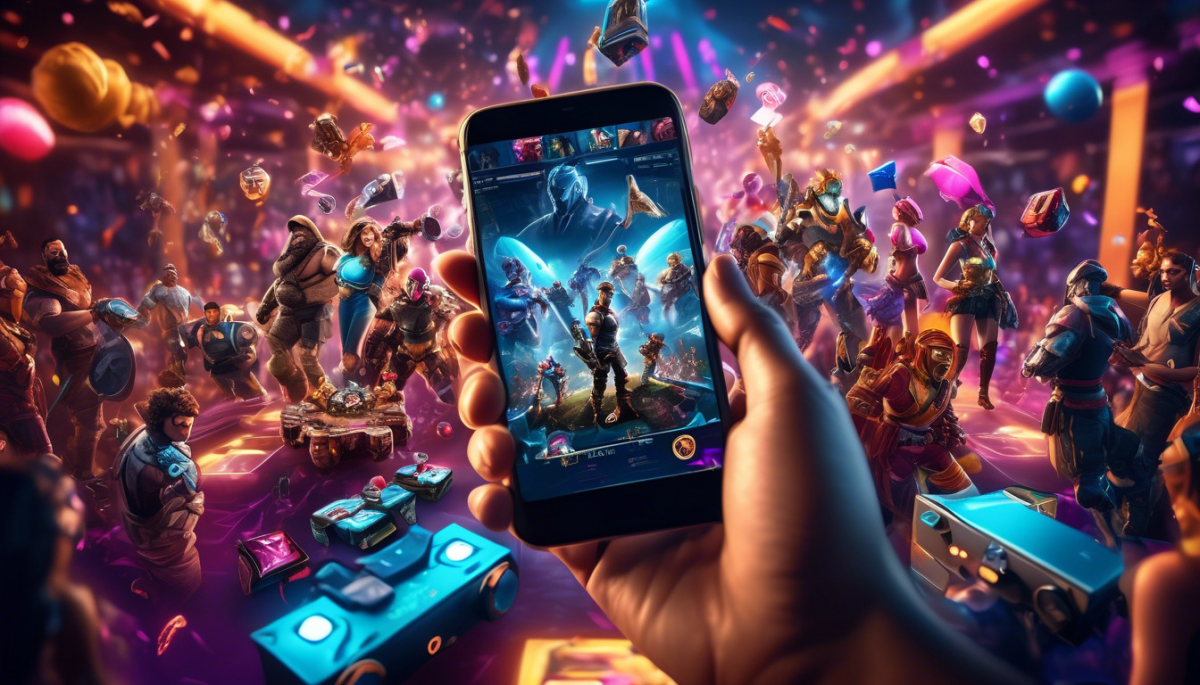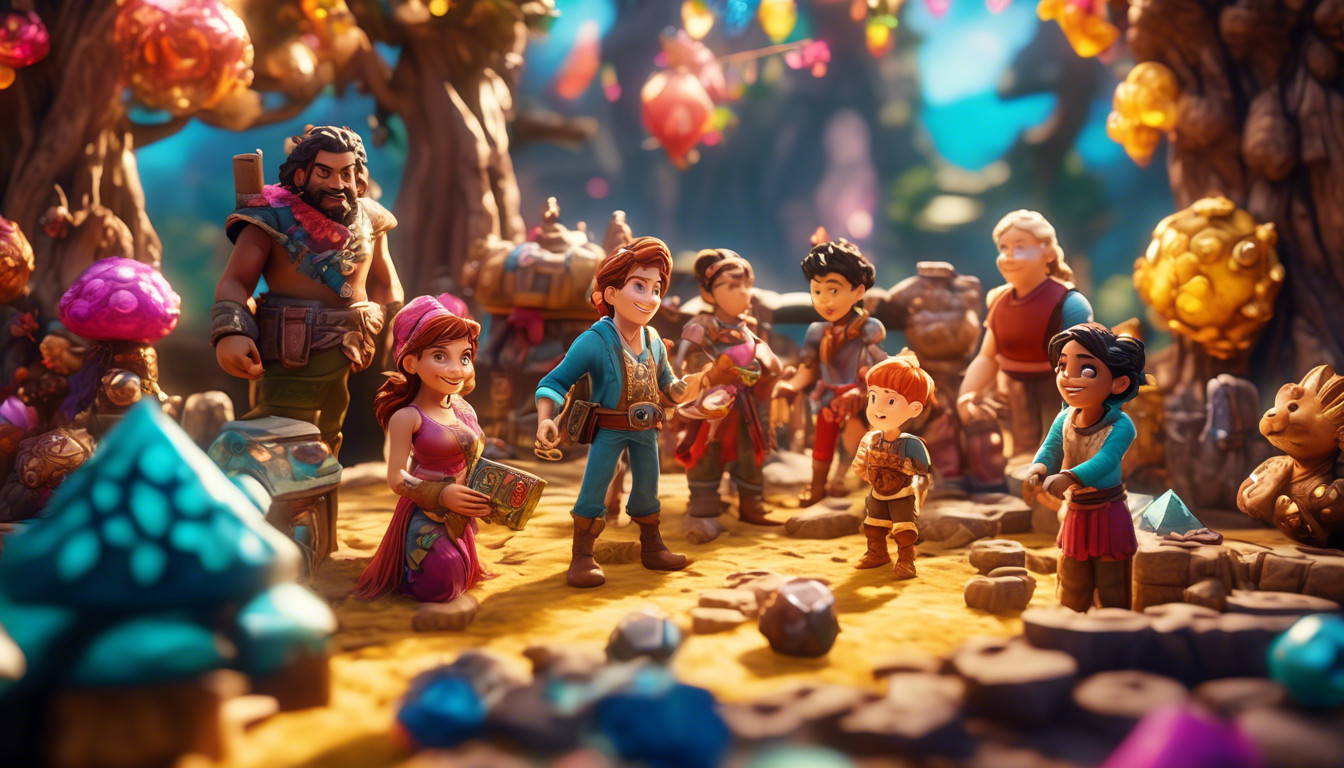The rapid expansion of the mobile gaming industry presents significant opportunities for developers to create engaging and profitable online games. With a global audience that continues to grow, the strategic incorporation of benefits can enhance player satisfaction and retention, thereby driving the success of new game titles.
Key Areas of Focus:
-
In-game Rewards:
- Implementing compelling rewards can significantly improve user experience.
- Rewards encourage sustained engagement by providing goals and achievements.
-
Loyalty Programs:
- These programs can enhance player retention by offering benefits for continued play.
- They create a sense of value and appreciation among players.
-
Social Connectivity Features:
- Fostering a sense of community and competition can enhance player involvement.
- Features that allow social interaction increase the time spent in-game.
Balancing Monetization with User Satisfaction:
- It’s crucial to balance monetization efforts with user satisfaction to build long-term brand loyalty.
- Ensuring that monetization strategies do not detract from the user experience is essential for retaining players.
Insights from Trends and Case Studies:
- By examining current trends and successful case studies, developers can gain insights into effective strategies for maximizing player involvement and monetization.
- Understanding what works in the market can guide the development of new games and features.
Conclusion:
Incorporating these strategies effectively can lead to the continued growth of a game in a competitive marketplace. By focusing on enhancing the user experience and fostering a loyal community, developers can ensure the long-term success of their mobile games.
For more detailed insights and practical applications of these strategies, this link will take you further into the world of successful mobile game development.
Maximizing In-Game Rewards
Players can maximize in-game rewards by strategically completing daily challenges and participating in special events. Achieving these objectives not only enhances the gaming experience but also fosters a sense of belonging among the gaming community.
- Effective participation in these activities often leads to increased rewards.
- These rewards contribute to a player’s progression and satisfaction.
Aligning game design with player interests allows developers to create a rewarding ecosystem that encourages consistent engagement.
The strategic implementation of monetization techniques can further enhance the reward system:
- Offering exclusive content or bonuses in exchange for loyalty or monetary investment can significantly boost player retention.
- By cultivating a loyal player base through well-structured rewards, developers can facilitate a thriving community where players feel valued and connected.
This approach not only benefits the players but also supports long-term monetization goals for the developers.
Ultimately, maximizing in-game rewards serves as a critical component in sustaining an active and loyal player base while ensuring the game’s financial success.
Enhancing Player Loyalty Programs
Developers can significantly boost player retention and engagement by implementing well-structured player loyalty programs.
These programs create a sense of belonging and community, encouraging players to remain active participants. By offering consistent rewards and incentives, loyalty programs foster a deeper connection between the game and its users. This sense of loyalty not only enhances the gaming experience but also contributes to long-term success.
Loyalty programs can be strategically designed to align with monetization goals, offering players rewards that are both meaningful and motivating.
For instance, tiered loyalty systems can be employed, wherein players unlock:
- Exclusive content
- Discounts
- In-game currency
Such rewards increase the perceived value of continued gameplay, thereby encouraging sustained engagement.
Furthermore, loyalty programs can drive monetization by incentivizing players to make purchases that enhance their gaming experience.
By carefully balancing rewards and monetization strategies, developers can ensure a win-win situation where:
- Players feel valued.
- The game’s financial objectives are met.
This approach cultivates a thriving gaming environment.

Leveraging Social Connectivity Features
Integrating robust social connectivity features into online mobile games significantly enhances player engagement and community building.
These features create an environment where players feel part of a collective experience, fostering a sense of belonging. By enabling players to connect, compete, and collaborate with friends and other players, the social aspect becomes a powerful tool to drive loyalty. Players who engage socially are more likely to return, as they form connections and create shared experiences.
Offering rewards for social interactions serves as an incentive for players to engage further. These can include:
- In-game achievements
- Exclusive content for forming in-game alliances
The potential for monetization arises when players invest in their social identity and status within the game. This can include purchasing:
- Exclusive items
- Features that enhance social standing
Therefore, leveraging social connectivity not only boosts player retention but also opens avenues for monetization, aligning with players’ intrinsic desire for recognition and belonging within the gaming community.

Balancing Monetization for User Satisfaction
Effectively balancing monetization strategies ensures user satisfaction by aligning financial incentives with the gaming experience. This approach fosters a sense of community among players and creates an environment where rewards are perceived as fair contributions to the gaming ecosystem.
Implementing tiered reward systems and loyalty programs encourages continued engagement and enhances the overall gaming experience while maintaining monetization goals. Players feel valued when progression and rewards reflect their dedication and skill, which strengthens their connection to the game.
Strategically designed monetization should avoid disrupting gameplay and instead offer optional enhancements that complement the player’s journey. To achieve this, game developers must consider the psychological aspects of gaming, such as:
- The joy of achievement
- The satisfaction of unlocking new content
By providing players with meaningful choices and clear paths for progression, developers can cultivate loyalty and build a dedicated community.
A balanced approach to monetization, coupled with thoughtful reward systems, can drive sustained engagement and foster a positive relationship between developers and players, benefiting all parties involved.



